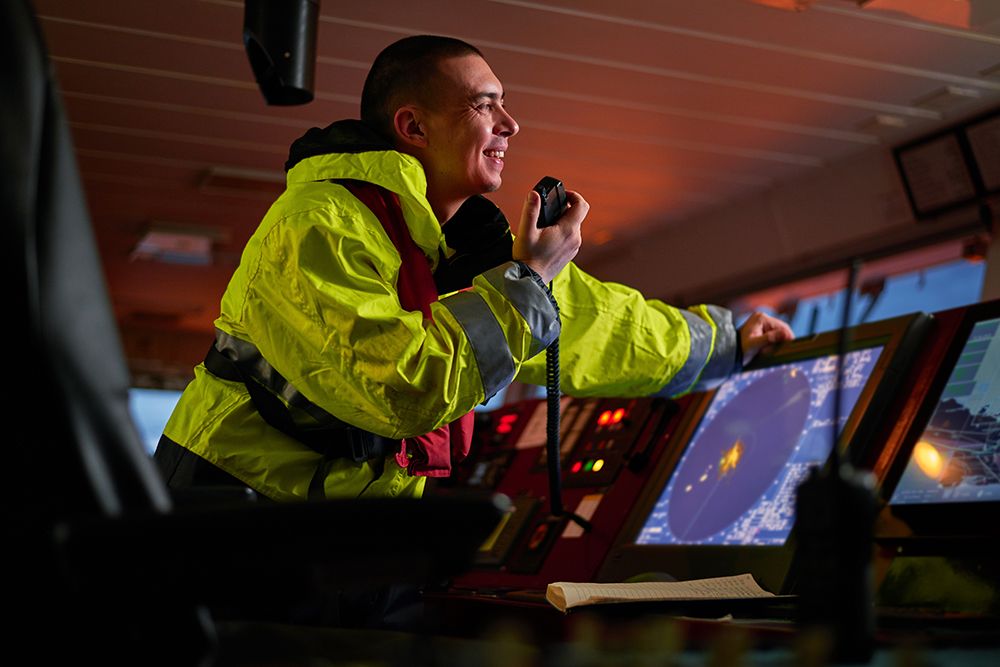
Protecting seafarers and safeguarding the marine environment
By Nikolai Vassiliev, Chief, ITU Terrestrial Services Department
Seafarers are the engine that propels the global maritime industry. The world’s 1.9 million seafarers are responsible for operating and maintaining vessels and navigating the seas – thereby enabling safe passage of more than 80 per cent of goods traded between countries yearly.
At the same time, seafarers must safeguard themselves, their passengers, and the surrounding ocean. Reliable communication systems are essential on board every vessel at sea, both for smooth day-to-day sailing and to address accidents and emergencies promptly and effectively.
This year’s Day of the Seafarer highlights the contribution of seafarers to the safety of ships and the protection of the marine environment. This vital contribution relies on reliable, modern maritime communication systems coordinated and harmonized globally through the International Telecommunication Union (ITU).
ITU has a long history of developing standards and regulations for maritime communication services and technologies that ensure safety and security at sea.
Through the allocation and protection of frequency spectrum for maritime communications at successive World Radiocommunication Conferences, and by developing specific standards for maritime radiocommunication systems, decisions by ITU’s Member States have served to enhance safety at sea.
Improving distress calls
While safety has always been the number-one priority for seafarers, the perils of the harsh maritime working environment are never far away. One essential tool for modern seafarers is the Global Maritime Distress and Safety System (GMDSS), introduced by ITU and the International Maritime Organization (IMO) in 1999.
The GMDSS enables seafarers on a ship in distress to send an alert to nearby vessels and to shore-based search and rescue services using various radio systems.
Over the years, ITU Member States, along with companies and organizations in the ITU Radiocommunication Sector (ITU-R), have kept looking at ways to further improve maritime distress and safety communications.
At the last World Radiocommunication Conference, WRC-19, ITU Member States allocated additional radio-frequency spectrum for new elements in the system, thus expanding coverage and enhancing GMDSS capabilities. Among these was the addition of a non-geostationary satellite system, which expands satellite coverage for distress and safety communications for seafarers in polar regions.
The upcoming WRC-23, taking place in Dubai, United Arab Emirates, between 20 November and 15 December, will consider possible regulatory actions to support further GMDSS modernization and the implementation of e-navigation.
Manuals aboard every vessel
Seafarers and their vessels continue to rely on the Maritime Manual, List IV (List of Coast Stations and Special Service Stations), and List V (List of Ship Stations and Maritime Mobile Service Identity Assignments) – all ITU-R publications maintained and issued by the ITU Radiocommunication Bureau.
ITU’s Maritime mobile Access and Retrieval System (MARS), updated daily, includes information on more than 900,000 vessels and over 2,000 coast stations, with search and rescue authorities worldwide relying on the MARS database to resolve distress and safety alerts at sea.
In continuously working to improve maritime communication, ITU also helps to uphold environmental, operational, and safety requirements aboard ships, including incident reporting under the IMO’s International Convention for the Prevention of Pollution from Ships (MARPOL).
Modern maritime communication systems provide safety benefits for seafarers, reduce accidents at sea, help to protect the marine environment and support the transition to a greener future for maritime transport.
ITU’s maritime experts continue helping to lay the regulatory and technical foundations for greater maritime connectivity and safer transport by sea, aiming to empower seafarers worldwide with digital technologies as part of a sustainable future for all.
ITU is proud to be associated with the Day of the Seafarers and to congratulate IMO on the 50th anniversary of the MARPOL convention.
Header image credit: AdobeStock
